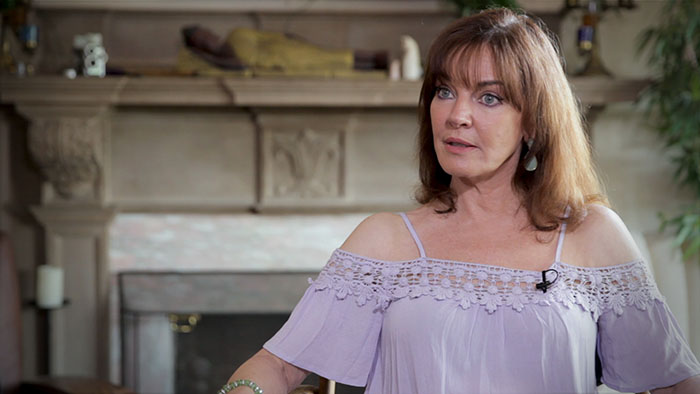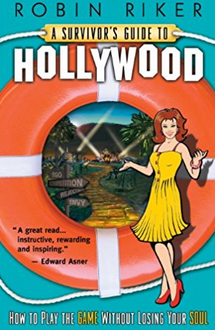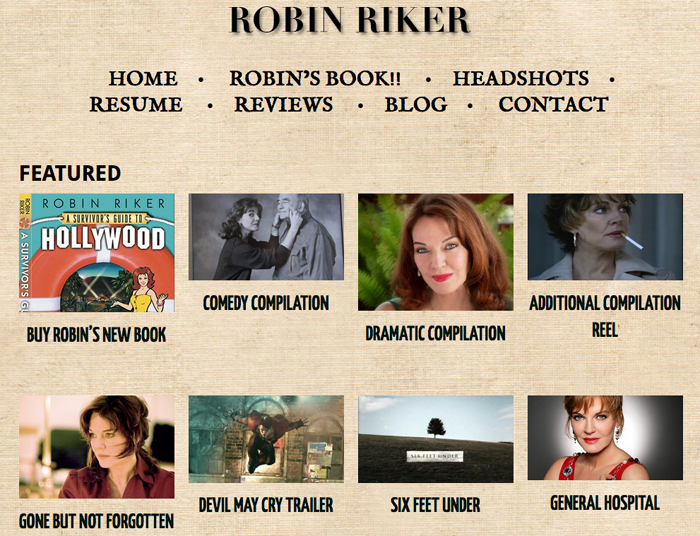
Watch the video interview on Youtube here
Film Courage: What are some of the best ways to become a better actor? Aside from being a perpetual student in some of these classes that I know are beneficial but people can get stuck in, right?
Robin Riker, Actor/Author: There are always classes, you want to be careful of teacher as guru. You really have to be watchful for that because there are many times where it’s more about the teacher and the student’s adulation of that teacher than it is about the students, you know?
So the way to become a better actor is to act, is to get on stage as much as you possibly can and don’t let any of this New York versus Los Angeles theater thing dissuade you because I’ve seen brilliant shows and stinkers in big houses and small on both coasts.
So you just have to do it. Actors act. If you sit around your house and get a play reading together with other actors that you know just read (and then you celebrate afterwards), you do that. You have to do it because interacting with other people is just social. It’s very important I think. And being a not-so-absorbed person because you learned things from every experience being out in the world, watching the way people move. listening to the sounds of their voices and the ticks they have and the things they do. It’s all about incorporating something real into these fictional moments you are creating on stage. The more reality you bring to it the better you’ll be.

CHECK OUT ROBIN’S NEW BOOK- A SURVIVOR’S GUIDE TO HOLLYWOOD: How To Play The Game Without Losing Your Soul
Here is a tip I’ve found valuable I learned this very early on because my mother was actually my coach and when I was doing a Shakespeare festival for two seasons when I was a kid and she was getting her Master’s there at Boulder.
So I had to audition for everything when she wasn’t directing. And I liked language so I had a proclivity for verse. But there were times when the verse…I mean I was nine…so it didn’t fit in my mouth quite right. So what I learned was to put in my head…well this doesn’t help with verse so much but it helps with interpretation of anything and in regular language this helps. If there is a line that doesn’t fit in your mouth well, rephrase that in your head the way you would say that concept and then impose that rhythm onto the sentence that you’re given.
I wish I could have an example right now, but if it’s something a simple as you know “I want you to go to the store and buy some celery” and that doesn’t make sense to you, in your head you go “You know, you need celery?” And then you go in your head “I want you to go to the store and buy some celery.” So you say it with the music of the rewrite of the music that you put in your head. You impose the music of the rewrite on the line that doesn’t fit in your mouth and it really works! Does that make sense to you?

Watch the video interview on Youtube here
Film Courage: Yeah, it sure does. Because maybe it will be something that you won’t normally say but you put it in your voice. I can’t really articulate it but I get it.
Robin: You put the music of your voice. You don’t put it in your words. You put it in the music that accompanies your words. So your superimposing the sound of “You know? We could use some celery.” On “I want you to go to the store and get some celery.” Instead of “I want you to go to the store and get some celery” (lowers her voice). Or whatever, that’s a very silly example but it’s the concept of the tone imposed on the words that don’t fit in your mouth, make the concept fit in your head and then put the music of that over your words that don’t fit.

Film Courage: Right, so if you say things with maybe an inflection at the end, a question or maybe more of a directive, whatever way you normally speak to someone in that context, you do it and try to fit that sentence in?
Robin: The sound of that sentence over the words that don’t fit because every actor has gotten a line that “I would never say this?” And “Can’t make this real. How do I make this real?” So you reinterpret that sentence to your own words and hear how that sounds in your head and put the sound of that on the words that don’t fit. And it’s always worked for me and when I’ve given it as advice to others they’ve said “I like that, that really helps.” Because it personalizes it, it makes it real listening to the tones of others and that sort of thing. It’s very helpful. So listen to your own tones too and have them help you.
Question For The Viewers: Which part of this interview was most helpful for you?

CONNECT WITH ROBIN RIKER
Robinriker.com
Twitter
survivorsguidetohollywood@gmail.com
Like this video? Please subscribe to our Youtube channel. Or love this video and want more? You can show additional support via our Youtube sponsor tab (hit the JOIN button on the front page of our Youtube channel in the upper right hand corner or underneath any video if watching on Youtube) or through Patreon.
Advertisement – contains affiliate links:
If you’re not quite ready to let go of the Halloween spirit, new indie feature film Mandao of the Dead is now available on Amazon VOD.
Mandao (Man-Day-Oh) of the Dead is about Jay Mandao and his nephew-in-law Jackson who use astral projection to reverse a ghost’s death on Halloween.
This astral comedy is the second feature film Written and Directed by Scott Dunn and produced by Gina Gomez Dunn. It was filmed in 10 days with a production budget of just $13k. The duo’s first feature film, Schlep won Best Comedy/Dramedy at the Hollywood Boulevard Festival and was nominated in 5 different categories at the FirstGlance Film Festival. Schlep is also available on Amazon. Mandao of the Dead will be released on iTunes and DVD/Blu-ray in January 2019.
Film Music Mentor – A Youtube channel for filmmakers, television producers, content creators and media professionals of all kinds. Film Music Mentor will help you circumvent problems even the most seasoned professionals face.
Multiple award-winning composer/music producer Andrew Markus breaks down every challenge that motion picture creators face in the process of putting music in their projects. Why it works and why it fails.
Restraint – A mentally ill woman who’s been submerging her violent impulses for years unravels after she marries a controlling older man and relocates to his suburban home by Adam Cushman



























